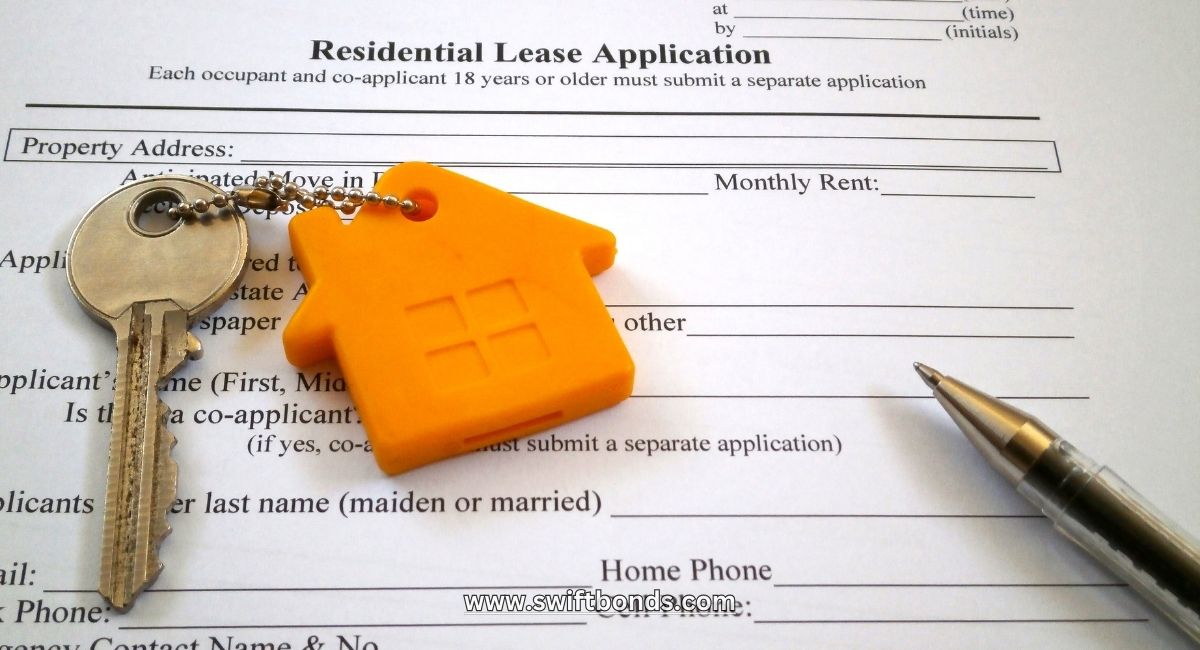Get an Instant Quote on Tenant Lease Bond
Introduction
From our perspective, securing a place to live or operate a business in Illinois often comes with financial barriers. For tenants, this can mean large upfront security deposits that tie up cash flow. A tenant lease bond offers an alternative solution, providing financial protection for landlords while easing the burden on tenants.
Like the Village of Glencoe, IL - Contractor License ($10,000) Bond and the Illinois - Public Adjuster for INDIVIDUAL eff Jan. 1, 2024 ($50,000) Bond, this bond acts as a guarantee that tenants will fulfill lease obligations, covering unpaid rent or damages in the event of a contract breach. Unlike traditional cash deposits, this option can provide greater flexibility for both tenants and property owners.
Common Misconceptions About Tenant Lease Bonds
We’ve noticed that many believe this bond replaces a security deposit entirely. In reality, a tenant lease bond functions as a financial guarantee rather than an upfront cash deposit. It assures landlords that they have financial recourse if a tenant fails to meet lease terms.
Another common misunderstanding is that this bond protects tenants from legal action. This is not the case—if a claim is made against the bond, the tenant remains financially responsible for repaying the surety company. The bond ensures payment to the landlord, but the tenant must reimburse the surety for any payouts.

How a Tenant Lease Bond Benefits Both Parties
Based on our experience, securing a tenant lease bond can provide multiple advantages for both landlords and tenants:
For Tenants:
- Reduces upfront costs – Instead of paying a large security deposit, tenants can use a bond.
- Improves access to rental properties – Some landlords prefer bonded tenants over those with low credit scores.
- Frees up cash for other expenses – Tenants avoid locking in thousands of dollars that could be used elsewhere.
For Landlords:
- Guarantees financial protection – If a tenant defaults on rent or damages the property, the bond covers losses.
- Expands the tenant pool – Landlords can attract more renters, including those with limited funds for deposits.
- Provides quick financial relief – If a tenant breaks the lease, landlords can file a claim against the bond for damages.

How to Secure a Tenant Lease Bond
What we’ve discovered is that obtaining a tenant lease bond follows a straightforward process:
- Verify lease requirements – Confirm with the landlord if a lease bond is acceptable instead of a cash deposit.
- Choose a surety provider – Swiftbonds specializes in fast approvals and competitive pricing.
- Submit an application – Provide personal and financial details to determine bond eligibility.
- Receive a quote – The cost depends on credit history, lease amount, and financial background.
- File the bond – Once issued, submit it to the landlord or property management company.

What Happens Without a Lease Bond?
In our observation, failing to provide a security deposit or lease bond can result in:
- Denial of rental applications due to missing financial requirements.
- Loss of rental opportunities, especially in competitive housing markets.
- Higher upfront costs, requiring tenants to pay cash deposits that may take months to refund.
For landlords, not requiring a lease bond may increase the risk of financial losses if tenants default on payments or cause property damage.

The Role of Tenant Lease Bonds in Illinois
We’ve learned that tenant lease bonds are growing in popularity as an alternative to traditional deposits. They provide financial security while allowing tenants to retain more cash on hand.
For renters, this bond can mean greater flexibility in securing a home. For landlords, it serves as a reliable safety net, covering potential financial risks without holding onto large cash reserves.
Conclusion
The Illinois - Tenant Lease Bond provides financial flexibility for tenants while protecting landlords from potential lease violations. It is a valuable alternative to traditional cash deposits, offering benefits for both renters and property owners.
Without this bond, tenants may face higher upfront costs, and landlords risk financial losses from unpaid rent or property damage. Working with Swiftbonds allows tenants to secure a lease bond quickly, ensuring a seamless rental process for everyone involved.
Frequently Asked Questions
Who needs a tenant lease bond?
Tenants who prefer to avoid cash security deposits or landlords seeking added protection may require this bond.
How much does a tenant lease bond cost?
The bond premium depends on lease amount, credit score, and surety provider rates. Those with higher credit scores may qualify for lower costs.
Does this bond replace a security deposit?
Not exactly. While it serves a similar purpose, it does not provide upfront cash—instead, it guarantees payment to the landlord if a tenant defaults.
What happens if a landlord makes a claim?
If a claim is filed and paid, the tenant must repay the surety for any losses covered by the bond.
Where do I submit the bond?
Tenants must provide the bond to the landlord or property manager as part of the lease agreement.


